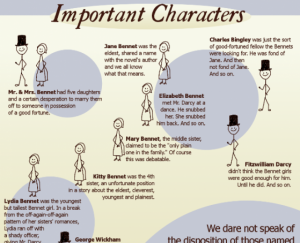The other day I drove past Facebook’s location in Menlo Park. Somehow, I’d expected the campus to be a single, sleek blue and silver building (with a single, well-placed thumbs-up mounted on the top), not the colorful city in miniature tucked into the rare open space in Silicon Valley it turned out to be. I believed, at least for a moment or two, that real people worked in the buildings, not just well-dressed bots churning out new algorithms week after week. Such a humanizing belief is reinforced by the fellow guests passing through the house where I’m staying, often from other tech firms like Evernote and Oracle. I strategized every day for a week when the woman from Google stayed in the room next to mine, finally taking my best shot when our schedules crossed in the kitchen one night.
“I’ll share my black beans and rice with you if you’ll open the secrets of the search algorithm to me, ” I said. “And I have chocolate in the fridge. Dark. From Trader Joe’s.” (I didn’t actually offer my dinner or my chocolate. What I really said was much less interesting.)
“I work in sales, ” she shrugged. “I have no secrets.”
Damn, I thought. And she’s a nice human, too.
We have no top secret algorithms here at Tweetspeak. (Though we’ll happily come up with some secrets to share in exchange for dark chocolate.) But through a process that’s one part data, one part intuition, one part special sauce, we’ve gathered what seem to be the 10 most popular posts in the Tweetspeak archives (from all time). Whenever I look through the archives I marvel at the remarkable writers assembled here and the richness of the articles they’ve contributed.
Maybe you have a favorite post from the archives? Let us know in the comments.
1. Poem Analysis: Anne Sexton’s “Her Kind”

2. Simpleton’s Guide to Pride and Prejudice (Infographic)

3. Poem Analysis: Adrienne Rich’s “Diving into the Wreck”

4. Ghazal Poetry: How to Write a Ghazal & Playlist

5. Simple Tips on Finding and Working With a Book Publicist

6. The Shakespeare Files: Sonnet 116 (Annotated)

7. Poetry Classroom: Sonnet 18

8. Twitter Poetry Party: Barbie Poems

They’re smart enough for poetry?
Barbies is an interesting topic.
I want to stay but I need to go.
But If you leave, who’ll represent
Ken? I’ve never been compared
to Ken before.
Read more Barbie poems from one of our earliest Twitter poetry parties.
9. The Swing: A Children’s Poem on the Playground

10. How to Write a Catalog Poem (with or without words)

The funny thing that happens when you concoct your own algorithm is that the results can sometimes be unpredictable, like getting 11 posts when you asked for 10. Here’s our bonus #11 post, just for good measure:
11. Poetry Classroom: Hard Road by Li Bai

Cover photo by Studio Tempura, Creative Commons license via Flickr. Thumbnail photos credited in individual posts. Post by LW Lindquist.
______________________________
Want to brighten your morning coffee?
Subscribe to Every Day Poems and find some beauty in your inbox.
- Earth Song Poem Featured on The Slowdown!—Birds in Home Depot - February 7, 2023
- The Rapping in the Attic—Happy Holidays Fun Video! - December 21, 2022
- Video: Earth Song: A Nature Poems Experience—Enchanting! - December 6, 2022

Monica Sharman says
I liked this one, partly because of the lively discussion in the comments:
https://www.tweetspeakpoetry.com/2013/06/12/survivor-editorial/
Sandra Heska King says
I liked that one, too!
L. L. Barkat says
Ha. I do think a Tweetspeak algorithm would be mischievous like that.
Oh, Monica, yes. That was a good conversation!
Will Willingham says
We’ll do a Top 10 Best Discussions post one of these days, maybe. 🙂
Sandra Heska King says
I like all the artist’s dates, though I’m not sure which is my favorite. I need a date.
SimplyDarlene says
favs
induce
laughter
thought
discussion
a trip to the library
favorite-ing one
(or ten, even)
simply can’t
be done –
weather
mood
days
alter
my
ideas
ideals
needs
KSP says
So fun to be among such great company!